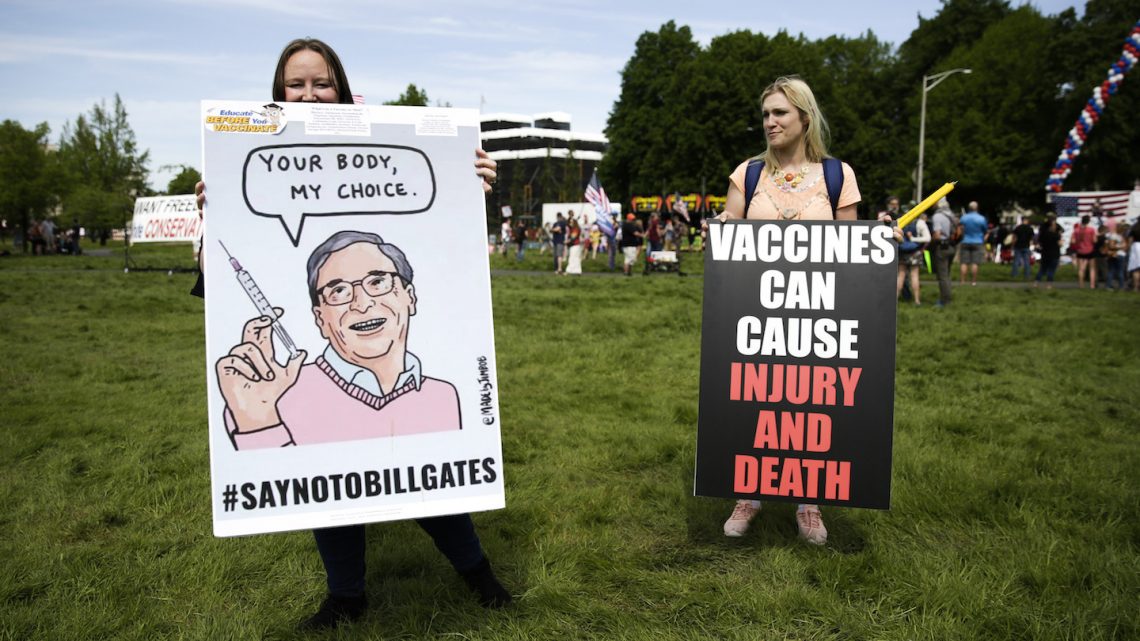
Australian Media Is Giving Anti-Vaxxers Nine Times More Coverage Than Usual. That’s Bad for Everyone
June 16, 2020Australian media coverage of “anti-vax” issues has seen a major spike in recent months, with researchers worried the country is now seeing a potentially correlated drop in vaccinations.
Reporting of anti-vaccination activity increased ninefold in Australia in May while the number of people getting routine vaccinations dipped, according to Fairfax. And although both of these things can likely be chalked up to coronavirus—the ongoing race for a vaccine in the former case; social distancing and a lack of access to healthcare in the latter—experts fear the pandemic could also be emboldening anti-vaxxers and fuelling their campaign against vaccination science.
"COVID-19 has really rallied—and provided almost the perfect storm for—anti-vaccination activity," Associate Professor Margie Danchin, a paediatrician and vaccination expert at the University of Melbourne, the Royal Children's Hospital, and the Murdoch Children's Research Institute, told Fairfax. "They are using strong language and playing on emotion and fear in the middle of a pandemic when people are concerned, frightened, and know there are no cures."
Dr Jessica Kaufman, a senior researcher who is working alongside Associate Professor Danchin, confirmed in an email to VICE that it was indeed the pandemic that's likely fueled interest in anti-vaxxer ideologies.
"The uncertain and rapidly-evolving nature of the pandemic means that conspiracy theories and misinformation about vaccination are spreading more quickly and more widely than usual, especially online,” she wrote.
By “online”, Dr Kaufman mostly means social media. But traditional media mastheads also have a responsibility to not give too many column inches to conspiracy theorists and truthers, lest they themselves become complicit in the spread of misinformation. While the topic of “whacky anti-vaxxers” has clearly piqued the interest of media outlets around the world—see the recent tabloid obsession with Australian celebrity chef Pete Evans as a case in point—those outlets need to strike the balance between calling out misinformation on the one hand, and amplifying transgressive and potentially dangerous voices on the other.
“The media needs to report on vaccination issues in a responsible way that doesn’t over-amplify fringe voices or misinformation,” Dr Kaufman says.
“In this uncertain time, it’s more important than ever that trusted messengers like doctors, nurses, government spokespeople and researchers share clear information about the importance and safety of vaccination,” she adds. “Transparency is key … ensuring that people know where to go to find good, trustworthy information is key.”
Currently, vaccine refusal in Australia is relatively low, with only about 3 percent of children not vaccinated due to their parents’ anti-vax stance. The recent dip in vaccination rates does not necessarily mean that more people are actively refusing vaccines, or that anti-vaxxer beliefs are gaining more influence. But increased discussion around these issues—whether in the media or social media—does open the floor for conspiracy theorists and fringe voices to spread anti-vaccine messaging.
For the sake of public health, countering misinformation is vital.
“If anti-vaccine messaging leads to an increase in refusal or delay of routine vaccinations, outbreaks of diseases like measles can become a serious risk,” says Dr Kaufman. “Misinformation about vaccination may also have a negative impact on influenza vaccination rates, which could be devastating as we reopen society and enter the influenza season… [and it] could prejudice people against a future potential COVID-19 vaccine, if and when it is developed.”

